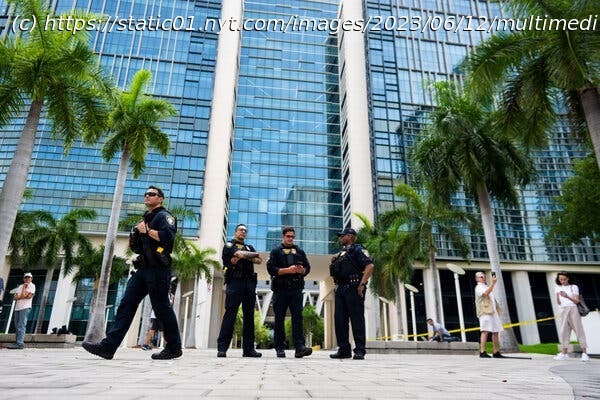Judge Aileen M. Cannon will wield sweeping power over the case’s tempo and what evidence to allow in or exclude.
Jack Smith, the special counsel handling the documents investigation into former President Donald J. Trump, vowed to seek “a speedy trial.” But that will be up to Judge Aileen M. Cannon, who will wield considerable power over its calendar, evidence and jury.
Last year, Judge Cannon, a Trump appointee, briefly disrupted the documents investigation by issuing rulings favorable to him when he challenged the F.B.I.’s search of his Florida club and estate, Mar-a-Lago, before a conservative appeals court ruled that she never had legal authority to intervene.
It remains to be seen how she will handle her second turn in the spotlight. It also is not clear whether she will refer some pretrial motions to a magistrate judge who works under her. But here is a closer look at how her decisions as the judge presiding over the trial — like on what can be included and excluded — could affect the case.Slowing the Calendar
Mr. Trump has long pursued a strategy of trying to delay legal proceedings against him to run out the clock. If the trial can be put off until after the 2024 presidential election, he or another Republican nominee could enter office and shut down the case.
“I think the Department of Justice will do everything in their power to bring the case as soon as possible, but it will be a challenge to bring it before we are well into the primaries,” said Brandon L. Van Grack, a former federal prosecutor who has worked on complex cases involving national security and classified material.
He added, “These issues are incredibly important to understand because we are talking a case that could influence an election — and more than just the general election.”Classified Evidence
Before the trial begins, there is almost certain to be extensive fights behind closed doors over the use of classified evidence, a matter governed by the Classified Information Procedures Act, or CIPA. The law was intended to reduce the opportunities for so-called graymail in criminal cases involving national security, in which defendants threaten to expose sensitive secrets unless prosecutors drop charges against them.
One potential issue: whether the government has to publicly expose all 31 classified documents that are the basis of the 31 counts against Mr. Trump for illegally retaining national-security secrets. Their contents are key evidence for whether they qualify as the type of information protected by the Espionage Act.
CIPA establishes court procedures to sometimes shield sensitive information from the public, including by redacting some documents or substituting summaries. But defense lawyers can argue that they need to discuss their full contents in open court for the trial to be fair.






